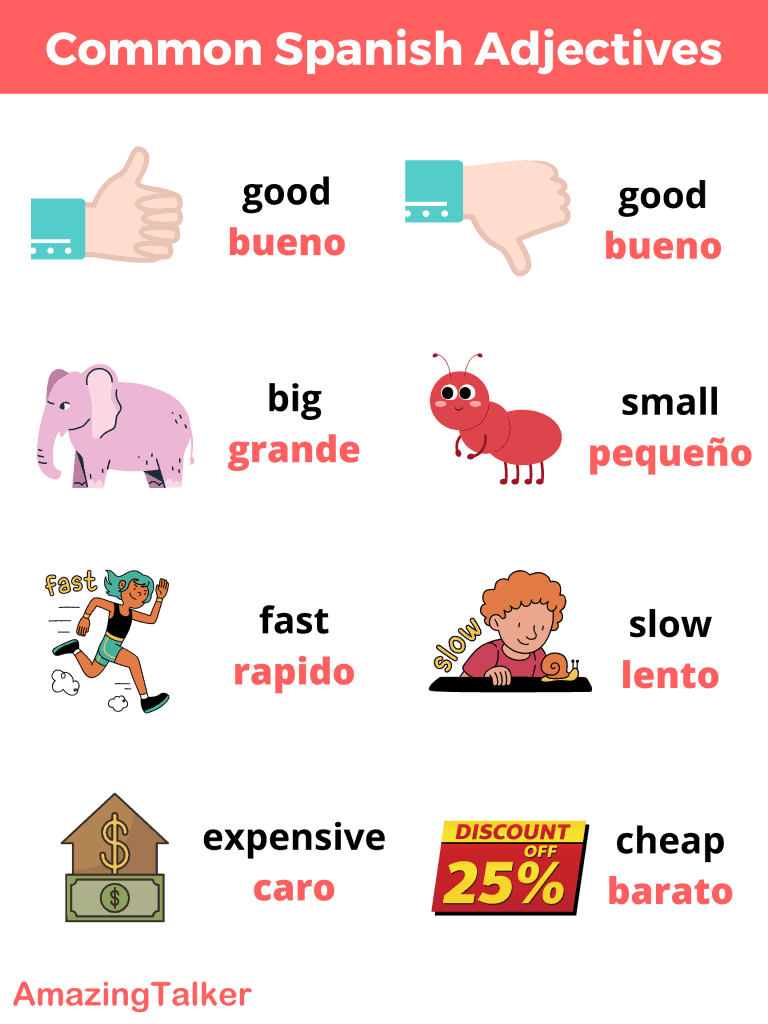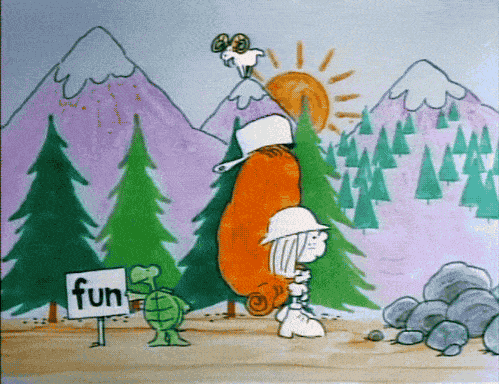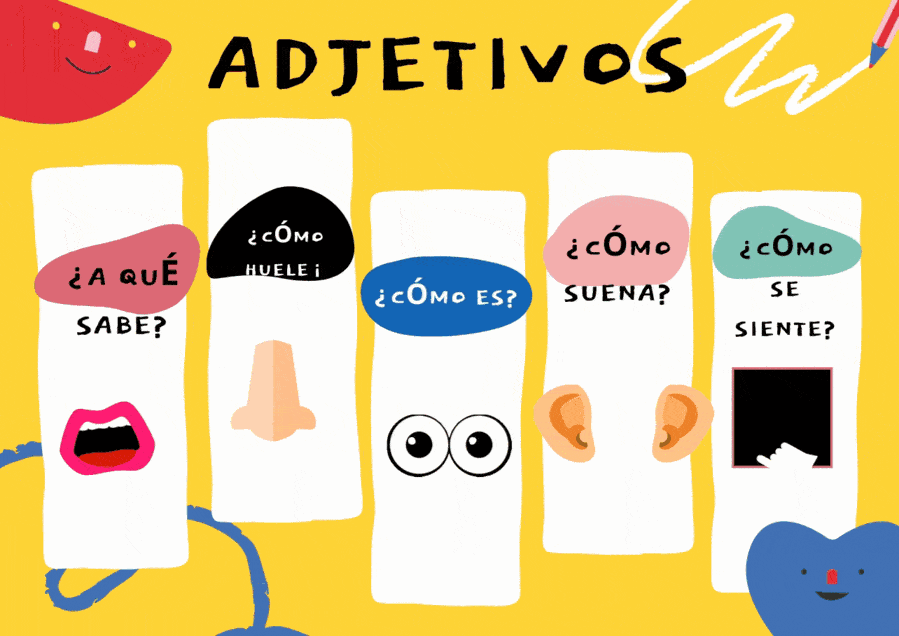Learning descriptive Spanish adjectives are a great way to enhance your Spanish-speaking abilities and add depth to your conversations. They can help you identify different nouns and clarify objects or places during a conversation in Spanish.
In this article, we will be looking at some of the more common adjectives found in the Spanish language and how gender-specific adjectives are not as daunting as they may seem.
Stay tuned until the end, for your own PDF list of the 100 most common Spanish Adjectives, so you can practice every day!

Spanish Adjectives in Sentences
- un zapato rosado (a pink shoe)
- una chica hermosa (a beautiful girl)
- un jugo dulce (a sweet juice)
- unos zapatos rosado y negro (pink and black shoes )
- una chica hermosa y alta (a beautiful and tall girl)
- un jugo dulce y rico (a sweet and delicious juice)
Spanish Adjectives with the Gendered Nouns
Descriptive adjectives in Spanish are used to describe a noun or a pronoun in a sentence. However, descriptive Spanish adjectives are listed in the masculine singular form, so it’s important to make the proper adjustments when using them in a sentence.
Masculine adjectives end in -o. To make an adjective feminine, all you have to do is put an -a in place of the o. Adjectives ending in -e are neutral and can be used with both feminine and masculine nouns.
- plato (plate) – masculine noun
- perro (dog) – masculine noun
- mesa (table) – feminine noun
- paloma (dove) – feminine noun
Neutral Adjectives
Although Spanish practices grammatical gender, it also makes use of neuter gender. Even though Spanish has neuter gender, it isn’t used for hard Spanish words listed in the dictionary as nouns.
The neuter is used in two instances: A handful of neuter pronouns such as ello are used under limited circumstances as the equivalent of an article. Such pronouns don’t refer to things whose names have gender but rather to concepts or ideas.
The neuter definite article -lo can be placed before an adjective to create a phrase that functions as a neuter abstract noun.
- dificil (hard)
Spanish: Sé lo difícil que esto debe ser para usted, señor
English Translation: I know how difficult this must be for you, sir.
- interesante (interesting)
Spanish: Lo interesante de las pulseras es que lucen con todo.
English Translation: The interesting thing about bracelets is that they go with everything.
- peor (worse)
Spanish: Lo peor es que todos nuestros amigos han vuelto allí.
English Translation: The worst thing is that all our friends are back there.

10 Most Common Spanish Adjectives
Adjectives in Spanish, like in English, is used to modify – or describe – nouns. In English, adjectives go in front of the noun, like in the phrase “a pretty woman”, in which “woman” is the noun and “pretty” is the adjective that describes her.
1. Bueno – Good
Bueno directly translates to “good”.
Spanish Translation: La dieta mediterránea es muy buena para la salud.
English Translation: The Mediterranean diet is very good for your health.
2. Malo – Bad
In Spanish, one of the most common adjectives used is “malo”, meaning bad.
Spanish Translation: Sabes que Denzel era el tipo malo en esa película.
English Translation: You know Denzel was the bad guy in that movie.
3. Grande – Big
Grande means “big”, and is used the same with masculine and feminine nouns.
Spanish Translation: Esta hamaca es extraordinariamente grande y perfecta para dos personas.
English Translation: This hammock is extra large and perfect for two people.
4. Pequeño – Small
Pequeño translates to “small”.
Spanish Translation: Pequeño pero muy acogedor y equipado con las cosas necesarias.
English Translation: Small but very cosy and equipped in all necessary things.
5. Rapido – Fast
The direct translation to “rapido” is fast.
Spanish Translation: Tomamos un tren rápido al aeropuerto.
English Translation: We took a quick train to the airport.
6. Lento – Slow
Lento como una lenteja, meaning “as slow as a lentil”. In Spanish, another way of saying slow, is lento.
Spanish Translation: El tiempo pasa muy lento en este colegio.
English Translation: Time passes so slow, in this school.
7. Caro – Expensive
Caro means expensive.
Spanish Translation: Queríamos comprar un coche nuevo, pero todos son muy caros.
English Translation: We wanted to buy a new car, but they are all very expensive.
8. Barato – Cheap
Barato is another wya of saying cheap, in Spanish.
Spanish Translation: Esta tienda es muy barata.
English Translation: This store is very cheap.
9. Alto – Tall
Tall in Spanish means ‘alto‘.
Spanish Translation: Ese hombre alto tiene que medir más de 200 cm.
English Translation: That tall man has to measure over 200 cm.
10. Bajo – Short
Short means “bajo“.
Spanish Translation: Es un poco bajo para su edad.
English Translation: He’s a little short for his age.

List of 90 Other Spanish Adjectives
Below are 90 of the most common adjectives in Spanish, both in the masculine and feminine form.
Masculine Adjectives
| Masculine Adjectives | English | Sentence | English |
| Abierto | Open |
La tienda está abierta por si quieres ir a comprar leche.
|
The store is open if you want to go buy milk.
|
| Cerrado | Closed |
El restaurante estaba cerrado a pesar de ser sábado.
|
The restaurant was closed despite being Saturday.
|
| Bonito | Pretty |
La villa dispone de una piscina grande y bonito jardín.
|
The villa has a large swimming pool and pretty garden.
|
| Feo | Ugly |
Tú no eres feo, pero él era muy guapo.
|
You are not ugly, but he was extremely handsome.
|
| Caliente | Hot |
El café está muy caliente. Todavía no lo puedo beber.
|
The coffee’s too hot. I still can’t drink it.
|
| Frío | Cold |
Pero ten cuidado, el lago está frío y es profundo.
|
But be careful, the lake is cold, the water’s deep.
|
| Aburrido | Boring |
¡Esta película es tan aburrida!
|
This movie is so boring!
|
| Divertido | Fun |
Su fiesta de cumpleaños fue muy divertida.
|
His birthday party was a lot of fun.
|
| Amargo | Bitter |
El café sin azúcar tiene un sabor amargo.
|
Unsweetened coffee has a bitter taste.
|
| Salado | Salty |
Le eché demasiada sal al guiso y ahora está muy salado.
|
I poured too much salt into the stew and now it’s very salty.
|
| Dulce | Sweet |
Esta sandía es jugosa, dulce y tiene muy buen sabor.
|
This watermelon is juicy, sweet and it has very good flavor.
|
| Agrio | Sour |
Este jugo de naranja está agrio.
|
This orange juice is sour.
|
| Débil | Weak |
Mi hijo es de constitución más bien débil.
|
My son is rather weak in constitution.
|
| Fuerte | Strong |
Está muy fuerte desde que empezó a levantar pesas.
|
It’s very strong since he started lifting weights.
|
| Enojado | Angry |
Jorge está muy enojado porque perdió su nuevo celular.
|
Jorge is very angry because he lost his new cell phone.
|
| Preocupado | Worried |
Estoy un poco preocupado si terminaré mi tesis antes de la fecha de entrega.
|
I am a little worried if I will finish my thesis before the due date.
|
| Feliz | Happy |
Feliz año nuevo para ti y toda tu familia.
|
Happy new year to you and all your family.
|
| Triste | Sad |
Se puso triste cuando supo que la había perdido.
|
He was sad when he knew he had lost her.
|
| Confundido | Confused |
Después de haber leído el artículo, estoy más confundido que antes.
|
After reading the article, I am more confused than before.
|
| Fácil | Easy |
Es muy fácil aprender un idioma nuevo si lo practicas todos los días.
|
It’s easy to learn a new language if you practice it every day.
|
| Difícil | Difficult |
Las cosas buenas son difíciles de conseguir sin esfuerzo.
|
Good things are difficult to achieve effortlessly.
|
| Gordo | Fat |
Ese gato está tan gordo que no alcanza saltar al sofá.
|
That cat is so fat that it can’t jump to the couch.
|
| Flaco | Thin |
Era muy pobre, bien flaco y pálido.
|
He was very poor and thin and pale.
|
| Joven | Young |
Quiero ser joven para siempre.
|
I want to be young forever.
|
| Viejo | Old |
Era viejo, pero probablemente no tan viejo como aparentaba.
|
It was old, but probably not as old as it appeared.
|
| Rápido | Fast |
¡Quiero un coche rápido cuando sea grande!
|
I want a fast car when I’m big!
|
| Lento | Slow |
Lento y firme ganan la carrera, no es así, ¿niño?
|
Slow and steady wins the race, right, boyo?
|
| Sucio | filthy |
¿Esta es toda la ropa sucia que hay que llevar a la lavandería?
|
Is this all the dirty laundry that needs to be brought to the laundry?
|
| Limpio | Clean |
Limpio, pero demasiado pequeño para recomendar a las familias.
|
Clean, but just too small to recommend for families.
|
| Lleno | Full |
Siempre tome estos medicamentos con un vaso lleno de agua.
|
Always take these medications with a full glass of water.
|
| Vacío | Empty |
El plato de dulces en la mesa estaba completamente vacío.
|
The bowl of candy on the table was completely empty.
|
| Nuevo | New |
Quiero comprar una mesa nueva, no una de segunda mano.
|
I want to buy a new table, not a second-hand one.
|
| Pobre | Poor |
Magda fue criada en un barrio pobre.
|
Magda was raised in a poor neighborhood.
|
| Rico | Rich |
Su sueño era hacerse rico y viajar por el mundo.
|
Her dream was to get rich and travel the world.
|
| Rapido | Quick |
Rapido, metelo en la bolsa.
|
Quick, put it in the bag.
|
| Lento | Low |
He puesto la carne y las verduras a fuego lento.
|
I’ve put the meat and vegetables on a low heat.
|
| Tarde | Late |
Date prisa, vamos a llegar tarde.
|
Hurry, we’re going to be late.
|
| Temprano | Early |
Me desperté temprano hoy.
|
I woke up early today.
|
| Útil | Useful |
Es muy útil tener un refrigerador en la oficina.
|
It’s very useful to have a refrigerator in the office. |
Feminine Adjectives
| Feminine Adjectives | English | Sentence | English |
| Buena | good |
¡Ten unas buenas noches, señor! |
Have a good night, sir! |
| Mala | bad | Mala idea al menos que quieras trabajar cada día. | Bad idea unless you want to work every day. |
| Pequeña | small | Nuestro apartamento es una pequeña joya de tradición y amabilidad. | Our apartment is a small jewel of tradition and friendliness. |
| Rápida | fast | Nuestros productos con calidad profesional, precio competitivo y entrega rápida. | Our products with professional quality, competitive price and fast delivery. |
| Lenta | slow | Fue una cosa lenta, esta ira de la gente decente. | It was a slow thing, this anger of decent people. |
| Cara | expensive | La más bonita y escandalosamente cara de todas las flores. | The most beautiful and shockingly expensive of all the flowers. |
| Barata | cheap | Es una opción barata y conveniente para grupos más grandes. | It is a cheap and convenient option for larger groups. |
| Abierta | open | Pero solo cuando la puerta de nuestros corazones esté abierta. | But only when the door of our hearts is open. |
| Cerrada | Closed | Durante nuestra visita no ruidoso como la piscina estaba cerrada. | During our visit not noisy as the pool was closed. |
| Alta | High | Alta precisión, es un pequeño error de procesamiento, y viceversa. | High precision, is a small processing error, and vice versa. |
| Baja | Low | Un favorito de muchos turistas cuando la marea está baja. | A favorite of many tourists when the tide is low. |
| Bonita | pretty | Que bonita rosas! | What pretty flowers! |
| Fea | ugly | La arquitectura en esta parte de la ciudad es fea. | The architecture in this part of the city is ugly. |
| Fría | cold | Instrucciones: Vierta 2 tazas de agua fría en la licuadora. | Directions: Pour 2 cups of cold water into the blender. |
| Aburrida | boring | ¿La vida sería tan aburrida sin los colores, no lo? | Life would be so boring without the colors, wouldn’t it? |
| Divertida | fun | Su vida está llena de interesantes eventos y situaciones divertidas. | Their life is full of interesting events and funny situations. |
| Amarga | bitter | Me dio vino… y una amarga poción de algún tipo. | She gave me wine, and a bitter potion of some kind. |
| Salada | salty | Como resultado, el adobo debe ser un poco demasiado salada. | As a result, the marinade should be a little bit too salty. |
| Enojada | Upset | Mira, Brenda, no hay razón para estar enojada conmigo. | Look, Brenda, there’s no reason to be upset with me. |
| Preocupada | worried | Una vez más, habla con tu doctor si estás preocupada. | Once again, talk to your doctor if you are worried. |
| Confundida | Confused | Lo abrió rápidamente, leyendo su contenido con una confundida expresión. | He opened it quickly, reading its contents with a confused expression. |
| Gorda | Fat | La primera capa no debe ser fuerte gorda. | The first layer should not be strongly thick. |
| Flaca | Skinny | Un poco flaca para mi gusto, pero estará bien. | A little skinny for my taste, but she’ll do. |
| Vieja | Old | Ella era demasiado vieja y triste para oír las palabras. | She was too old and sad to hear the words. |
| Rápida | Fast | Rápida entrega gratuita de la oficina más cercana a usted. | Fast free delivery of the nearest office to you. |
| Lenta | Slow | Lenta, pero ya sabes cómo es esto. | Slow, but you know how it goes. |
| Sucia | Filthy |
Tu ropa está sucia! |
Your clothes are dirty! |
| Limpia | Clean | La casa estaba muy limpia y en una ubicación perfecta. | The home was very clean and in a perfect location. |
| Llena | Full | La calle está llena de bares y restaurantes con ambiente. | The street is full of bars and restaurants with atmosphere. |
| Vacía | Empty | Algunos días te despiertas y tu cabeza está vacía. | Some days you wake up and your head is empty. |
| Nueva | New | Esto es para tu nueva vida, lejos de mi hija. | This is for your new life, away from my daughter. |
| Rica | Rich | El resultado es una harina rica en proteínas y vitaminas. | The result is a flour rich in proteins and vitamins. |
| Rápida | Fast | Ella es bien rápida cuando corre. | She is really fast when she runs |
| Temprana | Early | Un niño con educación temprana puede potenciar mejor sus capacidades. | A child with early on education can boost their capacities. |
Some adjectives don’t need to be adjusted for gender. An example of this would be adjectives that end in an -e:
- Inteligente (intelligent)
- Verde (green)
- Caliente (hot)
- Grande (big)
- Amable (kind/friendly)
Now that you learned new adjectives in Spanish, try learning the most common Spanish words, to better improve your Spanish level!Adjectives in Spanish

Are you Ready to Describe Everything in Spanish?
Nouns in Spanish can be classified as masculine or feminine. When native English speakers learn that Spanish has grammatical gender, they may have a hard time wrapping their minds around the concept. Grammatical gender doesn`t exist in English, so the gender of nouns in Spanish an entirely new concept. Adjectives ending in -e are neutral and can be used with both feminine and masculine nouns.
Adjectives can help you identify different nouns and clarify objects or places during the conversation. Descriptive adjectives in Spanish are used to describe a noun or a pronoun in a sentence. They work the same as they do in English but must agree with the noun or pronoun in both gender and number. However, descriptive adjectives are listed in the masculine singular form, so it`s important to make the proper adjustments when using them in a sentence.
It’s also important to remember that In Spanish, verbs don’t match the gender of the noun but rather stay the same.
If you’re interested in learning about adjectives in other languages, you can also check out Japanese adjectives.
Visit AmazingTalker to complete the next steps of your language learning journey!

















